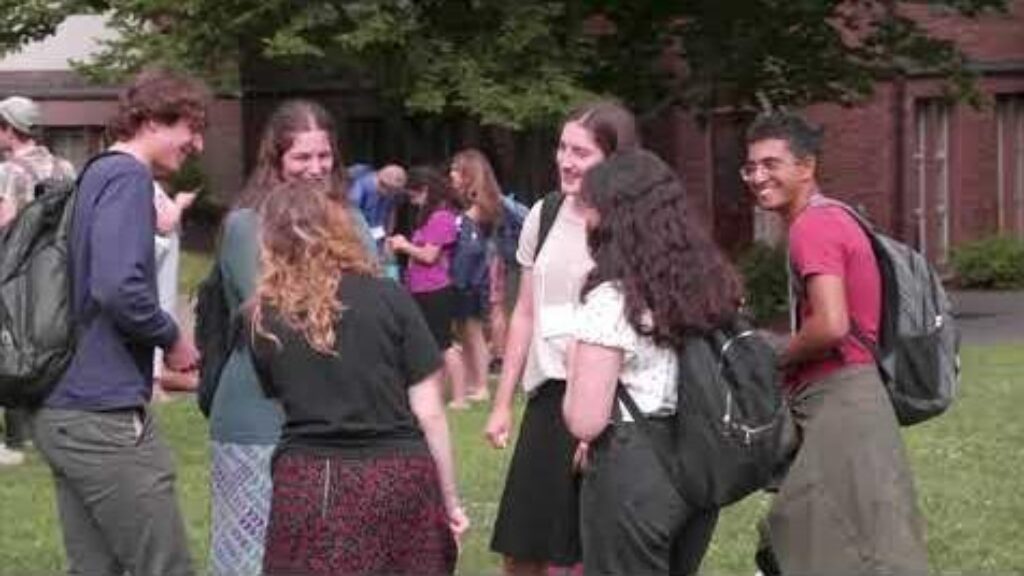Shining Our Light Unto the Nations Through Jewish Teachings
BY ADIN LINDEN
Jewish history is rife with enemies, from the Egyptians to the descendants of Amalek, a lineage that is seen as the greatest enemy of the Jews and many believe to include Haman, the Nazis, and Hamas. There is always somebody out to get us. Rarely is there a quiet, peaceful moment in our history that is not immediately followed by antagonism and hatred. However, in Isaiah 42:6, we are told that Jews are to be a “light unto the nations.”
Being a light unto the nations seems to mean spreading our ideas in order to “light” the dark of the other nations or to be an example for how other nations should live. How are we supposed to be a light unto the nations, when the nations seemingly hate us? It seems infeasible to be an example for a group of people who hate you. Thus, how can we balance being an example while being a scapegoat when things go wrong? And, most importantly, should Jews continue to try to be an example for all nations while being antagonized?
Jews have historically adopted a myriad of responses to anti-Semitism, ranging from assimilation to fighting back, fleeing, or creating communal safe spaces. God’s instruction for us to continually be examples for the other nations can be taxing on the Jewish people. If we are constantly focused on “spreading our messages,” we cannot focus on internal issues the Jewish people face. The verse in Isaiah is not vague; God very explicitly says, “I created you and appointed you. A covenant people, a light of nations opening eyes deprived of light.”
This is explicitly asking us to show the other nations our “light.” However, if we went around to other religions telling them why Judaism is so much better than and preferable to whatever they’re doing, we would be no better than the Crusaders who tried to take back Jerusalem or the Inquisitors who forced conversion or death on Jews in the 1400s.
In order to be a light unto the nations, while simultaneously not proselytizing and while frequently confronted with rampant anti-Semitism, we must be a quiet example of how to best be human. This means that Jews must focus on making sure that we are living the most moral lives that we can. Instead of constantly focusing on spreading our message to the world, we should ensure that we are a morally healthy and compassionate community. The teachings of our Rabbis are full of small nuggets of folk wisdom and life lessons that can help Jews become understated lights unto the nations.
On the thirty-first page of Bava Metzia, the Rabbis analyze multiple instances of double verbs. This is when the Torah uses two verbs in a row to mean the same thing. One of these quotations is from Parashat Kedoshim:
“הוֹכֵ֤חַ תּוֹכִ֙יחַ֙ אֶת־עֲמִיתֶ֔ךָ”
“You shall rebuke your neighbor.”
The verb that is repeated is the word for rebuke, which the Gemara explains means that teachers should not only rebuke their students, but students too should rebuke their teachers. This is a largely unconventional teaching, in that it encourages students (often seen as less than teachers) to question their teachers. The Rabbis are trying to ensure that Jewish teachers are teaching in moral and compassionate ways. Teaching is the cornerstone of a community and by setting up this system in which students and teachers “rebuke” each other, not hatefully but lovingly, it sets an example for the other nations—making the Jewish people a “light.”
Another example is with this quote from Parashat Re’eh:
“פָּ֠תֹ֠חַ תִּפְתַּ֨ח אֶת־יָדְךָ֜ לְאָחִ֧יךָ לַעֲנִיֶּ֛ךָ וּלְאֶבְיֹנְךָ֖ בְּאַרְצֶֽךָ׃”
“Open your hand to the poor and needy kin in your land.”
The verb that is repeated is the word for open, which the Gemara explains means that not only should you donate your money to the poor residents of your city, but also to the poor residents of another city. This is another example of the Rabbis trying to teach Jews that not only is it important to be pious and religious, but also to be compassionate and moral. They are telling us Jews that there are no limits to the giving one can do. It does not stop when you donate to your neighborhood, city, or country; as a Jew you should always try to find more people in need and give to them.
Charity is another pillar of a healthy community, and by making the Jewish community one where people give and are gracious, we again set an example for the other nations—which makes the Jewish people a “light.”
These teachings are just a few examples of many that exemplify how Jews can be a light unto the nations. Without proselytizing, Jews can show others how to best live their lives. If Jews follow the teachings of the Sages, we will become more thoughtful, caring, and respectful individuals.
In order to be a light unto the nations even while hated and scrutinized, Jews should lead thoughtful lives by utilizing the tradition we’ve inherited. By focusing our light inward, it grows more powerful and more meaningful for those we are supposed to be examples for.
Suggested Reading

A New Viewpoint on Diversity
Often, it seems that the people who talk about diversity never visit diverse communities. People seem to think that diversity is based on how one looks. True diversity is not about how someone looks, but how they act.

My Real Internal Conflict is Not One of Clashing Interests
When do my Jewish interests and American interests conflict? After much careful internal deliberation, I have concluded that they do not.

Regaining our Power Through Knowledge: The Solution to Rising Anti-Semitism on Campus
An emotional connection to our Judaism cannot be our only solace. Knowledge is the solution to the problem Jewish students face today.

The Dangerous Descent of American Free Speech
Decisive action must be taken in the fight against individual liberties - the future of the American experiment our Founders fought to preserve is at stake.